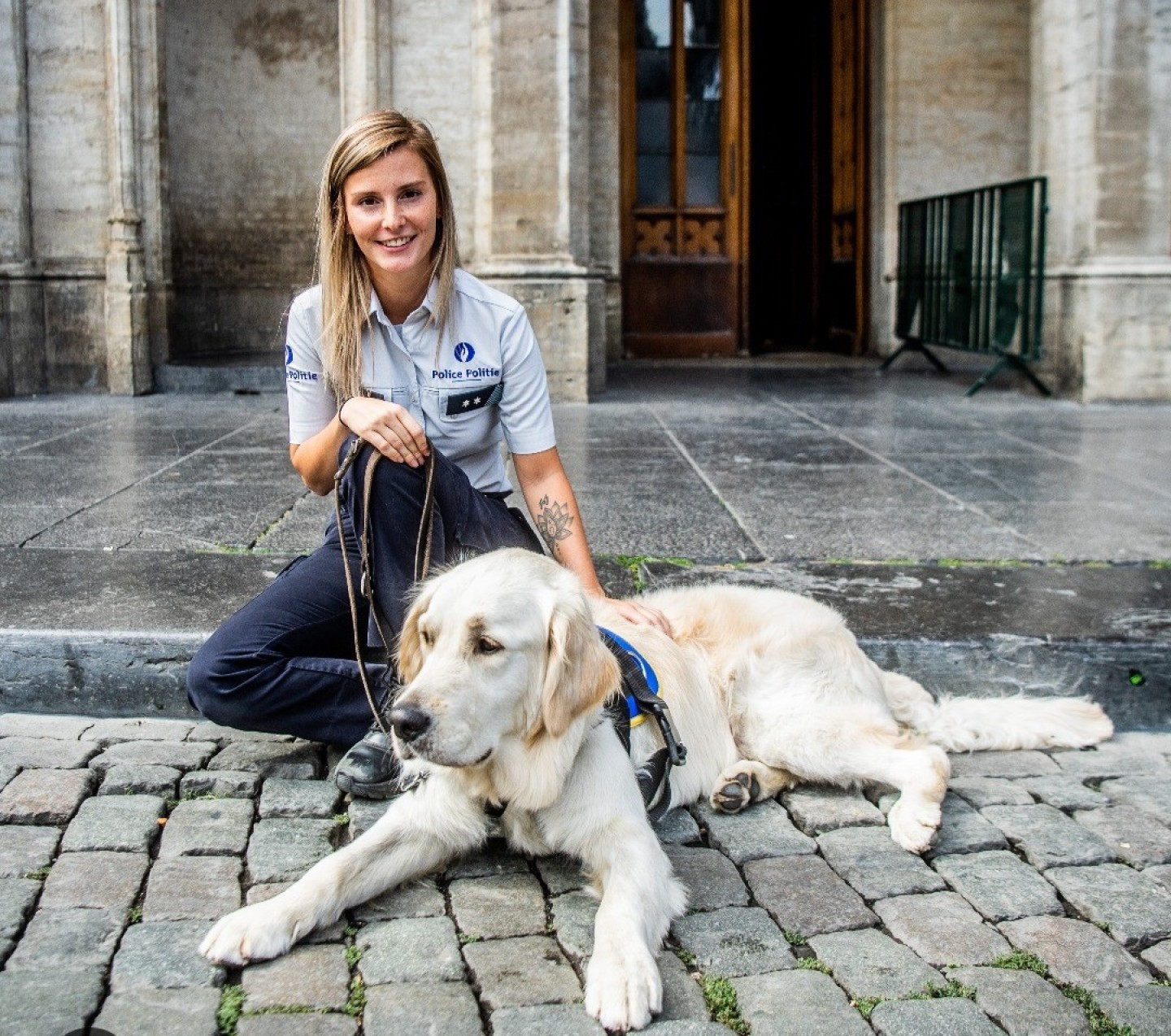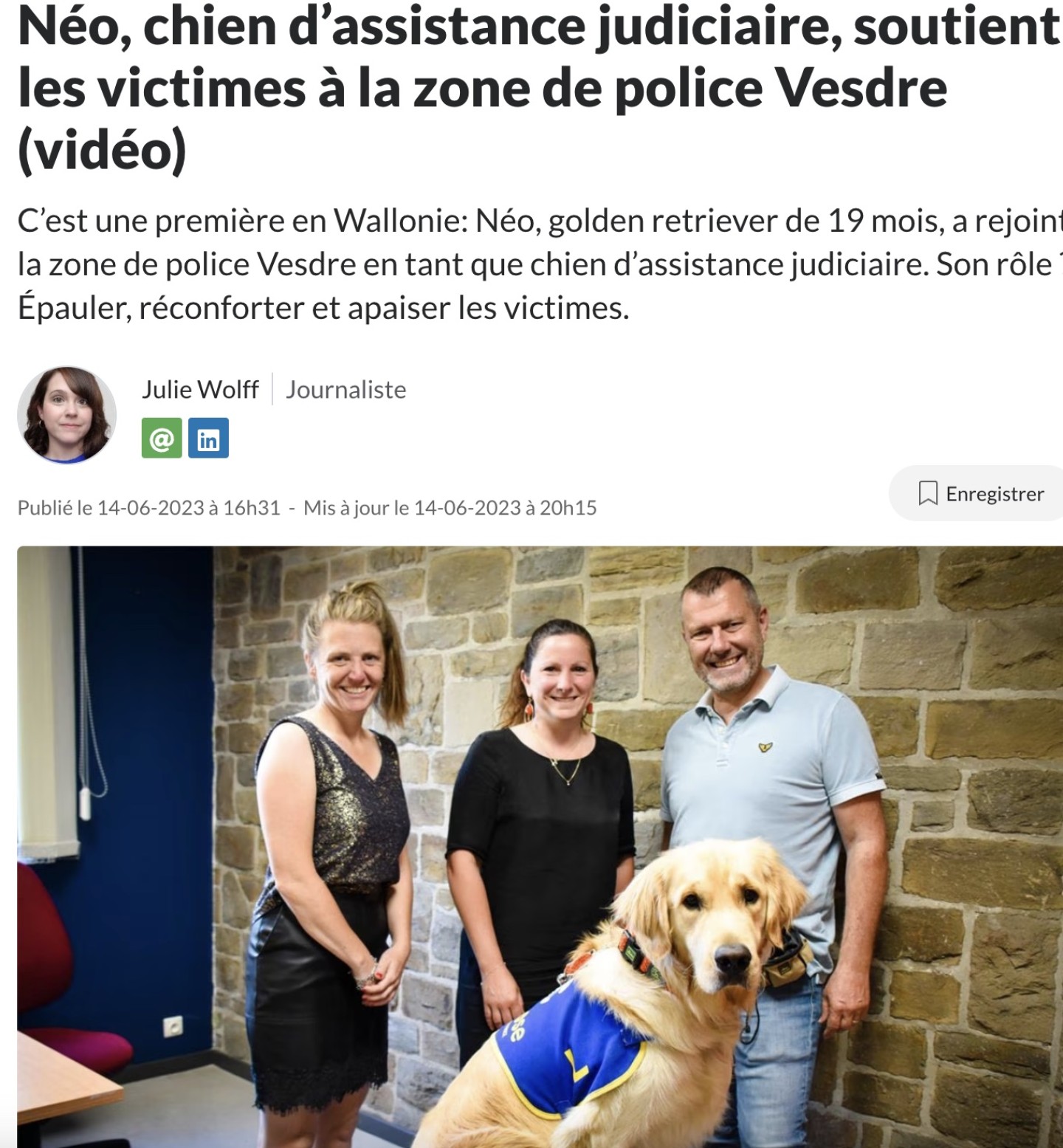Dog for Spécific projects
Os’mose’s special projects:
Expanding canine assistance beyond traditional boundaries
The majority of the dogs we train (help, alert, awakening) are intended to help a single person (and will obviously have an impact on the whole family), however the dogs trained for these specific projects will help many people on a daily basis.
Courthouse dogs are dogs trained to help victims of domestic violence or sexual assault. They are selected for their calm and empathetic temperament and their ability to provide support in a stressful environment (such as hearings).
This dog offers a non-judgmental and calming presence to victims. Each dog has a referent (police officer) who works with the victims; outside of work, he lives with the referent's family (with walks and games on the menu).
The dog helps reduce the stress and anxiety of victims and their families; it allows victims to open up about their trauma, feeling supported and more secure. In an often very heavy climate, the dog brings a dose of lightness.
During the evenings and weekends, the dogs relax, walk and play with the referent's family.
The institution dog also has a referent (animator, social worker, etc.) who takes it for daily work within the institution. Physiotherapists and occupational therapists can also use it for activities with residents (alone or in groups).
Special Projects: Pioneering New Ways to Support and Train Assistance Dogs
We note the physiological and psychological effects on the well-being of residents who are more motivated to do exercises for and with the dog. Walking it, playing, feeding it, talking to it, etc. stimulate people's cognitive functions and give them a certain taste for life but also the desire to move more and better.
Not forgetting the “memory” effect because the presence of the dog allows people to talk about their experiences and their life before the institution, notably by addressing the fact – for example – that they had dogs.
If you would like a dog, please fill in the following form (see admission conditions*): Specific project dog form
Visionnez nos reportages :

Find some reports on Lucky in the print/television media

Watch two reports about Néo, who supports Didier, a police officer in Verviers
*
- Live in Wallonia or Brussels
- Participate in the Os'mose “How to be an actor in One Welfare” training program.
- Live in a dog-friendly environment. The absence of a garden will be discussed.
- Be able to support a dog financially (food, veterinary expenses, etc.).
- Be able to take the dog out (daily walks, vet visits, etc.).
- Continue to work on acquired commands
- Be able to attend group lessons on Saturday mornings and individual lessons on weekdays for several months before having the dog and after receiving it.
- Have defined a “back-up” person at the time of application.
- Have the agreement of management at the time of application.


